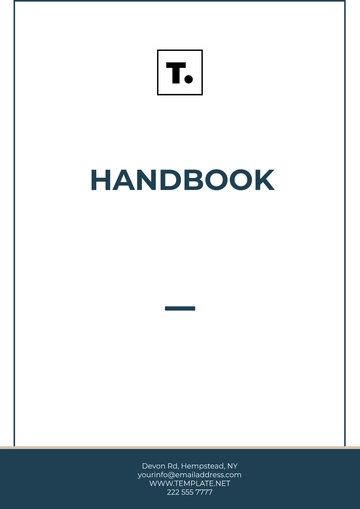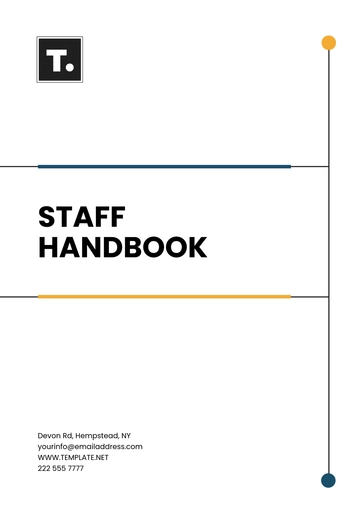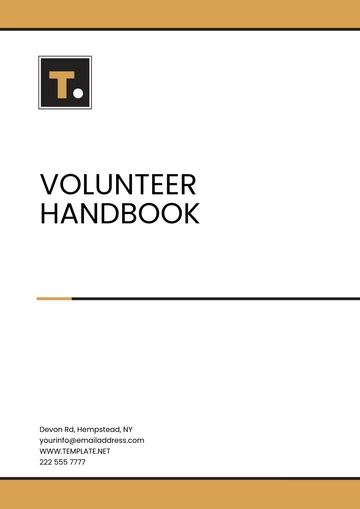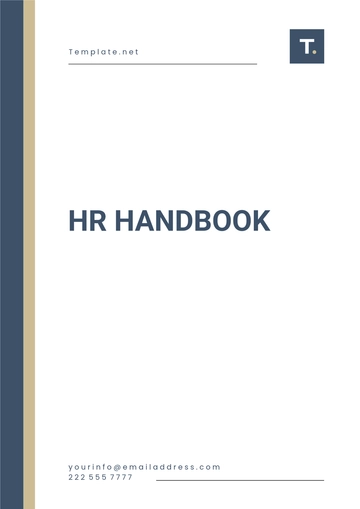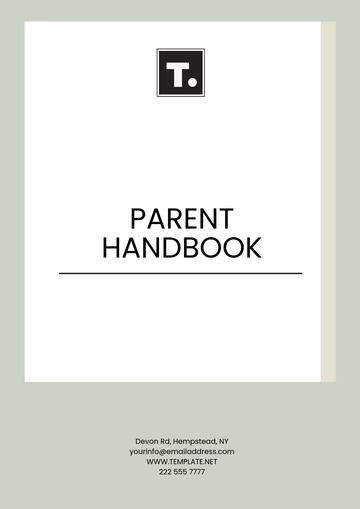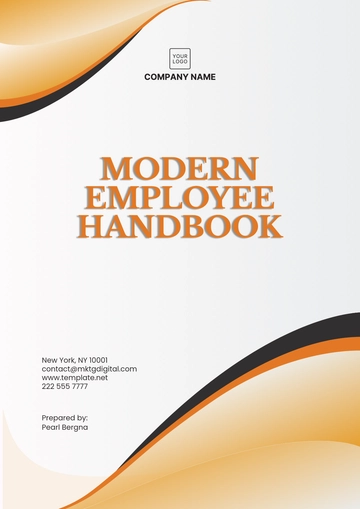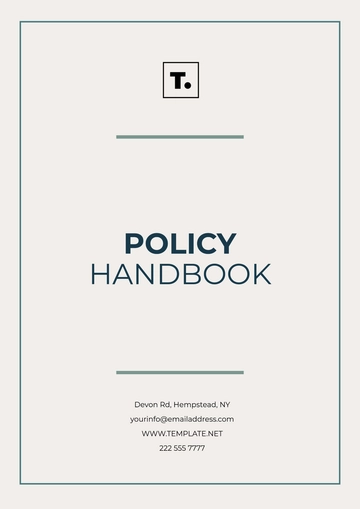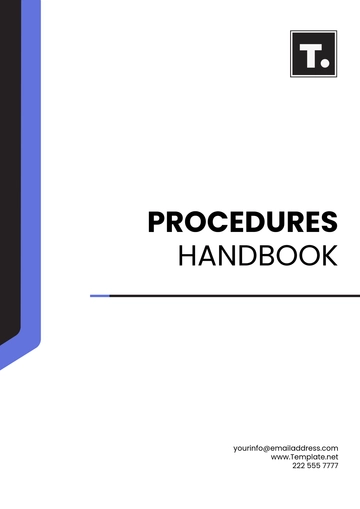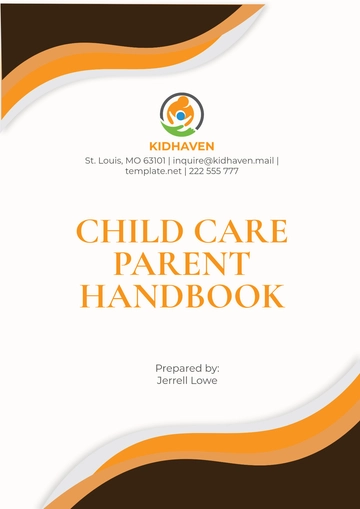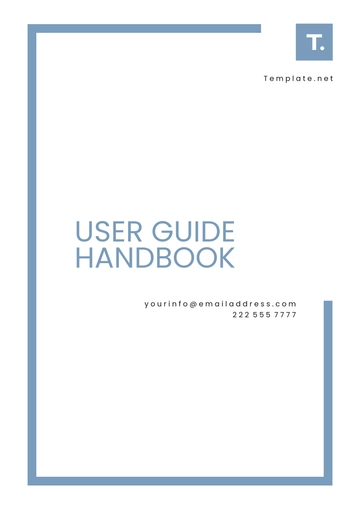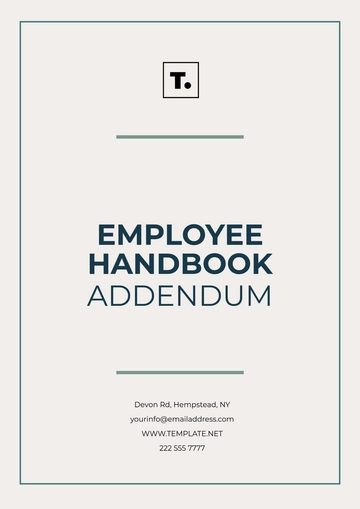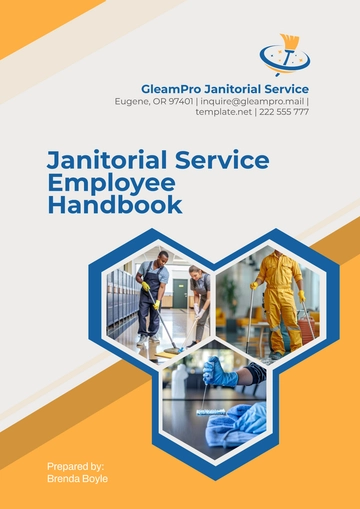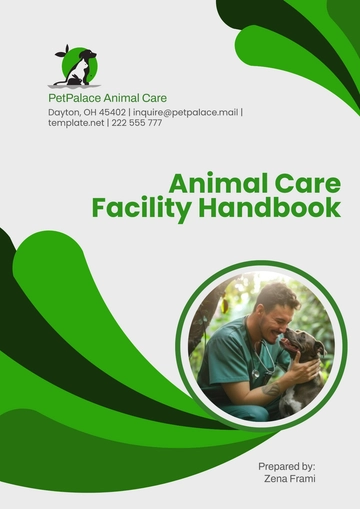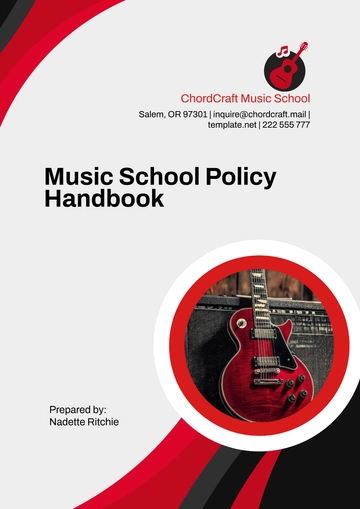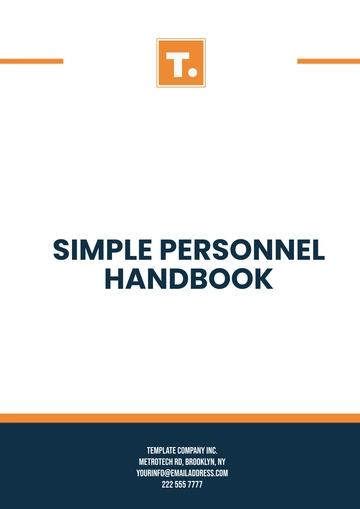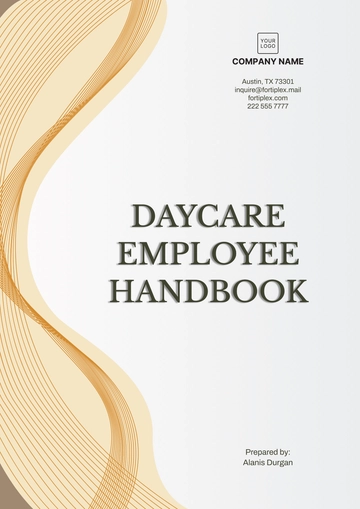Free Nursing Home Resident Rights Training Handbook
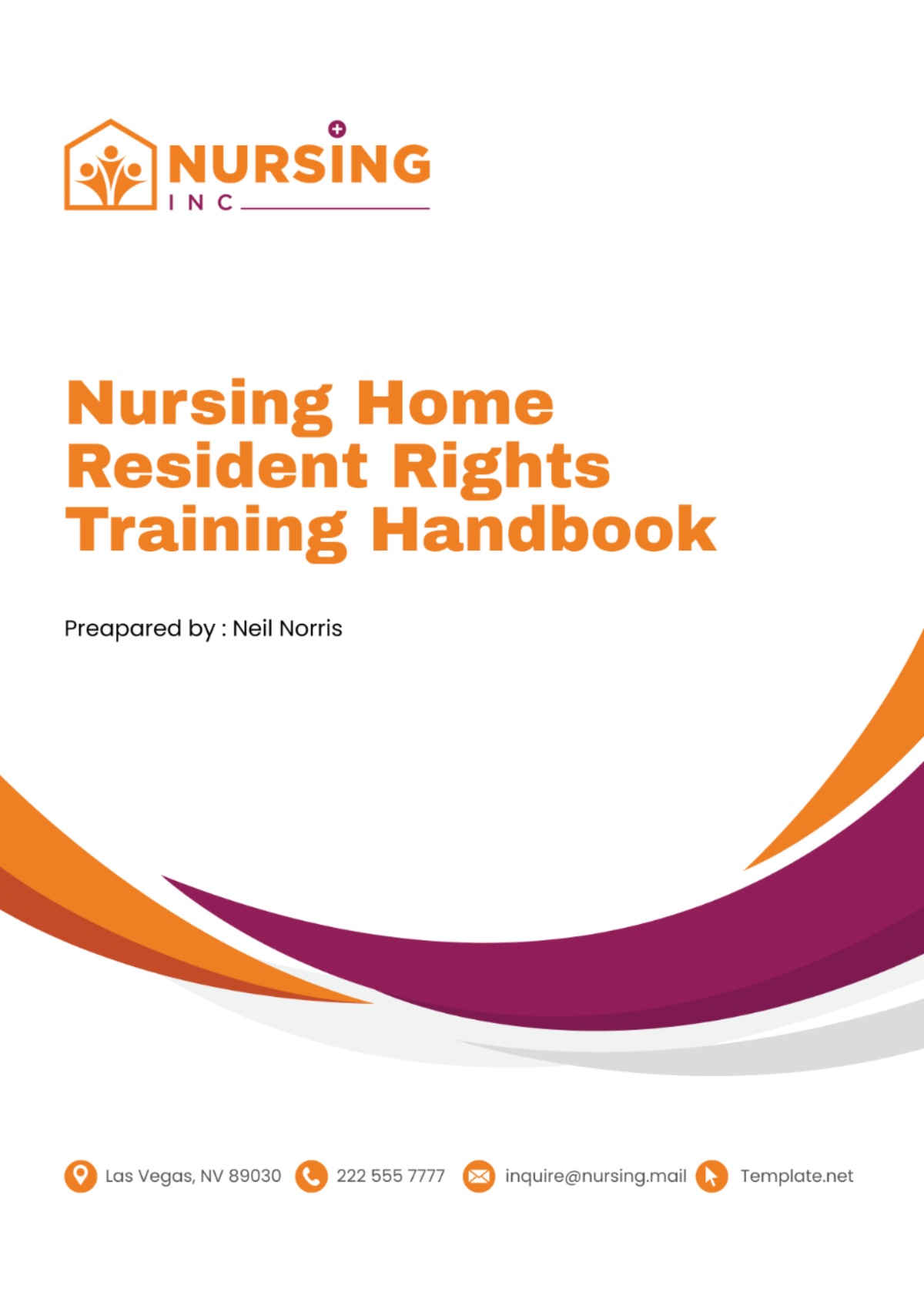
I. Introduction
Welcome to the Nursing Home Resident Rights Training Handbook provided by [Your Company Name]. This handbook is designed to educate our staff members, caregivers, and administrators about the fundamental rights of residents living in our facility. By understanding and upholding these rights, we ensure that every resident receives the highest quality of care and lives with dignity and respect.
II. Legal Framework
Our facility operates within the framework of federal and state laws, regulations, and guidelines that govern the rights of nursing home residents. It is essential for all staff members to be familiar with these legal requirements to ensure compliance and protect the rights of our residents.
Federal Laws:
Nursing Home Reform Act (OBRA) of 1987
Americans with Disabilities Act (ADA)
Health Insurance Portability and Accountability Act (HIPAA)
State Regulations:
Licensing requirements
Staffing ratios
Quality standards
State Ombudsman Programs
Regulatory Agencies:
Centers for Medicare & Medicaid Services (CMS)
State Departments of Health
Long-Term Care Ombudsman Programs
Guidelines and Standards:
National Consumer Voice for Quality Long-Term Care
The Joint Commission
Court Decisions and Legal Precedents
III. Overview of Resident Rights
Residents of our nursing home have the right to various fundamental rights, including but not limited to dignity, privacy, autonomy, and freedom from abuse or neglect. These rights form the cornerstone of our commitment to resident-centered care and are to be upheld at all times.
IV. Specific Resident Rights
A. Right to Dignity and Respect
The Right to Dignity and Respect ensures that every nursing home resident is treated with the utmost dignity, respect, and courtesy at all times. This fundamental right encompasses various aspects of care and interaction within the facility:
Individualized Care: Residents have the right to receive care that is tailored to their individual needs, preferences, and cultural background. This includes respecting their personal choices regarding daily routines, meals, and activities.
Privacy and Confidentiality: Residents have the right to privacy in their personal space, interactions, and personal affairs. Staff members must respect residents' confidentiality and refrain from discussing their personal information or medical history with others without consent.
Physical Comfort: Residents should be provided with a safe, comfortable, and clean living environment that promotes their physical well-being and enhances their sense of dignity. This includes access to appropriate bedding, clothing, and personal hygiene products.
Emotional Support: Staff members should offer emotional support and empathy to residents, acknowledging their feelings, concerns, and emotional needs. This includes providing reassurance, companionship, and opportunities for social interaction and emotional expression.
Cultural Sensitivity: Residents come from diverse cultural, religious, and ethnic backgrounds, and staff members should demonstrate cultural competence and sensitivity in their interactions. This includes respecting residents' customs, traditions, and beliefs related to food, clothing, rituals, and spiritual practices.
Maintaining Independence: Residents should be encouraged and supported in maintaining their independence and autonomy to the greatest extent possible. Staff members should assist residents with tasks only when necessary and respect their choices and preferences regarding self-care and decision-making.
Dignified End-of-Life Care: Residents approaching the end of life deserve compassionate and dignified care that respects their wishes, values, and preferences. Staff members should provide emotional support, pain management, and spiritual care, while also honoring residents' end-of-life decisions and ensuring a peaceful and comfortable transition.
B. Right to Privacy
The Right to Privacy is a fundamental aspect of resident rights in nursing homes, ensuring that residents' personal space, information, and choices are respected and protected. This right encompasses several key principles:
Confidentiality of Information: Residents have the right to privacy regarding their personal and medical information. Staff members must maintain confidentiality and refrain from disclosing residents' information to unauthorized individuals without consent. This includes medical records, personal histories, and any other sensitive information.
Private Living Space: Residents are entitled to a private living space where they can rest, relax, and engage in personal activities without intrusion. Staff members should knock and await permission before entering residents' rooms and should respect residents' personal belongings and space.
Personal Care and Hygiene: Residents have the right to privacy during personal care activities, such as bathing, toileting, and dressing. Staff members should provide assistance in a manner that preserves residents' dignity and modesty, allowing for as much independence and autonomy as possible.
Freedom from Unnecessary Observation: Residents should be free from unnecessary or intrusive observation, such as surveillance cameras or constant monitoring, unless necessary for their safety or medical care. Any use of monitoring devices should be transparent, respectful of residents' privacy, and compliant with applicable laws and regulations.
Access to Personal Belongings: Residents have the right to access and control their personal belongings, including clothing, toiletries, and personal effects. Staff members should respect residents' ownership of their belongings and assist with storage, retrieval, and maintenance as needed.
Confidentiality in Care Planning: Residents have the right to participate in care planning discussions and decisions without fear of their personal information being shared inappropriately. Staff members should ensure that care plans are developed and implemented in a manner that respects residents' privacy and confidentiality.
C. Right to Autonomy and Self-Determination
The Right to Autonomy and Self-Determination ensures that nursing home residents have the freedom to make choices about their own lives, including decisions related to their care, daily routines, and personal preferences. This right encompasses several key principles:
Informed Consent: Residents have the right to make informed decisions about their medical care, treatments, and procedures. Staff members should provide residents with comprehensive information about their options, including potential risks and benefits, and respect their right to accept or refuse treatment based on their preferences and values.
Choice in Daily Living: Residents have the right to make choices about their daily routines, activities, and schedules. Staff members should support residents in making decisions that reflect their preferences, interests, and individual needs, including meal choices, recreational activities, and participation in social events.
Personal Beliefs and Values: Residents have the right to practice their religious beliefs, cultural customs, and personal values without interference. Staff members should respect residents' spiritual and cultural preferences and provide opportunities for religious observance, prayer, and cultural celebrations as desired.
Advance Directives and End-of-Life Care: Residents have the right to create advance directives, such as living wills and durable powers of attorney for healthcare, to guide their medical care in the event of incapacity. Staff members should honor residents' advance directives and ensure that their wishes regarding end-of-life care are respected and followed.
Support for Decision-Making: Residents may require support and assistance in making decisions, particularly if they have cognitive impairments or communication challenges. Staff members should provide the necessary support, information, and resources to help residents make informed choices and express their preferences effectively.
Freedom from Coercion or Discrimination: Residents have the right to make choices without coercion, manipulation, or discrimination based on their age, disability, race, gender, sexual orientation, or other factors. Staff members should ensure that residents are treated with dignity, respect, and equality in all aspects of care and decision-making.
D. Right to Quality Care and Services
The Right to Quality Care and Services ensures that nursing home residents receive the highest standard of care that meets their individual needs and promotes their health, safety, and well-being. This right encompasses several essential components:
Comprehensive Assessment: Residents have the right to undergo a thorough assessment of their physical, mental, and psychosocial needs upon admission to the nursing home and regularly thereafter. This assessment forms the basis for developing individualized care plans that address residents' unique needs and preferences.
Skilled Nursing Care: Residents have the right to receive skilled nursing care from qualified and competent healthcare professionals, including registered nurses, licensed practical nurses, and certified nursing assistants. Staff members should be properly trained, licensed, and supervised to ensure the delivery of safe and effective care.
Medical Treatment and Medication Management: Residents have the right to access appropriate medical treatment, including physician services, diagnostic tests, therapies, and medications. Staff members should ensure that residents receive timely and accurate medical care, adhere to prescribed treatment regimens, and monitor for any adverse effects or complications.
Personal Care and Assistance: Residents have the right to assistance with activities of daily living (ADLs), such as bathing, dressing, grooming, toileting, and eating, as needed. Staff members should provide support and assistance in a respectful and dignified manner, promoting residents' independence and autonomy whenever possible.
Nutritious Meals and Dietary Support: Residents have the right to receive nutritious and well-balanced meals that meet their dietary preferences, cultural needs, and medical requirements. Staff members should offer a variety of food choices, accommodate special diets and food allergies, and monitor residents' nutritional intake to ensure optimal health and wellness.
Safe and Comfortable Environment: Residents have the right to live in a clean, safe, and comfortable environment that promotes their physical and emotional well-being. Staff members should maintain a hygienic living space, address safety hazards promptly, and provide adequate heating, cooling, lighting, and ventilation to ensure residents' comfort and safety.
Rehabilitation and Therapy Services: Residents have the right to access rehabilitation and therapy services, such as physical therapy, occupational therapy, and speech therapy, to improve their functional abilities, mobility, and independence. Staff members should collaborate with residents and healthcare providers to develop and implement personalized rehabilitation plans.
Pain Management and Symptom Control: Residents have the right to receive appropriate pain management and symptom control measures to alleviate discomfort, manage chronic conditions, and improve their quality of life. Staff members should assess residents' pain levels regularly, implement evidence-based pain management interventions, and monitor for any changes in symptoms or side effects.
E. Right to Freedom from Abuse and Neglect
The Right to Freedom from Abuse and Neglect guarantees that nursing home residents are protected from any form of mistreatment, harm, or neglect while residing in the facility. This fundamental right encompasses several critical elements:
Physical Abuse: Residents have the right to live free from physical abuse, including hitting, slapping, kicking, restraining, or any other form of physical harm inflicted by staff members, other residents, or visitors. Staff members should maintain a safe environment and intervene promptly to prevent and address any instances of physical abuse.
Emotional and Psychological Abuse: Residents have the right to be treated with dignity and respect in all interactions, free from verbal abuse, intimidation, harassment, or threats. Staff members should promote positive communication and interpersonal relationships and address any signs of emotional distress or psychological harm promptly.
Sexual Abuse: Residents have the right to be protected from sexual abuse, coercion, or exploitation by staff members, other residents, or visitors. Staff members should maintain strict policies and procedures to prevent and investigate allegations of sexual misconduct, provide support and advocacy for victims, and ensure that perpetrators are held accountable.
Neglect: Residents have the right to receive adequate care and attention to meet their physical, emotional, and social needs. Neglect occurs when essential care and services, such as assistance with personal hygiene, nutrition, medication management, or medical treatment, are withheld or provided inadequately. Staff members should monitor residents' well-being closely, address any signs of neglect promptly, and ensure that residents receive the necessary support and assistance.
Financial Exploitation: Residents have the right to manage their personal finances independently and without interference or exploitation. Financial exploitation occurs when staff members, family members, or others misuse or misappropriate residents' funds, assets, or property for their own benefit. Staff members should safeguard residents' financial resources, provide education and support regarding financial matters, and report any suspicions of exploitation to appropriate authorities.
F. Right to File Grievances
The Right to File Grievances ensures that nursing home residents have the freedom to voice complaints or concerns about any aspect of their care or living conditions without fear of retaliation. This essential right encompasses several key components:
Access to Grievance Procedures: Residents have the right to access and utilize formal grievance procedures established by the nursing home facility. These procedures should be clearly outlined in writing and readily available to residents and their representatives.
Confidentiality and Non-Retaliation: Residents have the right to file grievances confidentially, without fear of reprisal or retaliation from staff members or facility administrators. Staff members should respect residents' confidentiality and ensure that grievances are handled in a fair, impartial, and non-punitive manner.
Timely Resolution: Residents have the right to prompt and thorough investigation and resolution of grievances. Nursing home staff members should respond to grievances in a timely manner, acknowledge receipt of complaints, conduct a thorough investigation, and provide residents with regular updates on the status of their grievances.
Accessible Complaint Process: Residents have the right to access complaint processes that are accessible and understandable, regardless of their cognitive abilities, communication skills, or language proficiency. Staff members should provide assistance and support to residents who require help in filing grievances, including interpretation services and advocacy support.
V. Staff Responsibilities
All staff members have a responsibility to uphold the rights of residents and provide care and support in a manner that respects their dignity, autonomy, and individuality. This includes:
Staff must ensure that residents' rights are respected and upheld at all times.
It is the responsibility of staff to provide high-quality care that meets the needs and preferences of each resident.
Staff must treat residents with dignity and respect in all interactions and care activities.
It is important for staff to maintain the privacy and confidentiality of residents' personal information and affairs.
Staff must actively work to prevent any form of abuse or neglect toward residents.
Staff should facilitate the resolution of grievances or complaints raised by residents in a timely and respectful manner.
It is crucial for staff to maintain a safe and secure environment for residents, free from hazards or risks.
Staff should support residents in making their own choices and decisions, promoting their autonomy and independence.
Effective communication with residents, families, and colleagues is essential for providing quality care and support.
Staff must participate in ongoing training and education to stay updated on best practices and developments in the field of caregiving.
Collaborating with residents and their families to develop and implement care plans ensures that their needs and preferences are met.
Staff should adhere to facility policies and procedures to ensure consistency and quality of care.
Any concerns or incidents should be reported promptly to appropriate authorities or supervisors.
Providing emotional support to residents during challenging times contributes to their overall well-being and comfort.
Staff members should advocate for residents' needs and preferences, ensuring they receive the best possible care and support.
VI. Training Modules
Training modules are available to help staff members understand and apply resident rights principles in their daily interactions with residents. These modules cover topics such as:
Resident Rights and Responsibilities
Communication Skills and Active Listening
Cultural Competence and Diversity Awareness
Recognizing and Reporting Abuse and Neglect
Person-Centered Care and Dignity in Care
Infection Control and Preventing the Spread of Disease
Fall Prevention and Safe Handling Techniques
Medication Management and Administration
Emergency Preparedness and Response
End-of-Life Care and Palliative Support
Alzheimer's Disease and Dementia Care
Ethics and Professional Conduct in Long-Term Care
Customer Service and Resident Satisfaction
Teamwork and Collaboration in Care Settings
Stress Management and Self-Care for Caregivers
VII. Resources
Additional resources are provided for residents and staff members seeking further support or guidance on resident rights issues. These include:
State Department of Health
Long-Term Care Ombudsman Program
National Consumer Voice for Quality Long-Term Care
Centers for Medicare & Medicaid Services (CMS)
The Joint Commission
- 100% Customizable, free editor
- Access 1 Million+ Templates, photo’s & graphics
- Download or share as a template
- Click and replace photos, graphics, text, backgrounds
- Resize, crop, AI write & more
- Access advanced editor
Empower nursing home staff with knowledge of resident rights using Template.net's Nursing Home Resident Rights Training Handbook Template. Editable in our AI Editor Tool, this customizable template provides a structured format for developing comprehensive training handbooks covering resident rights, including dignity, privacy, autonomy, and access to care. Enhance staff awareness, promote resident-centered care, and ensure compliance!


